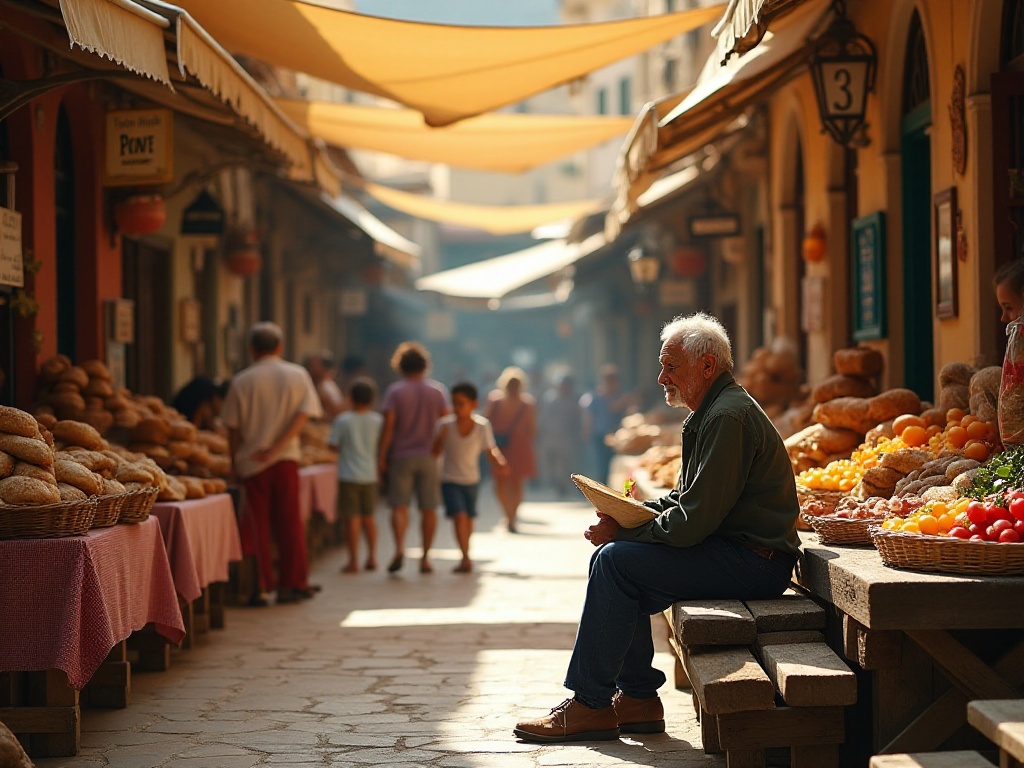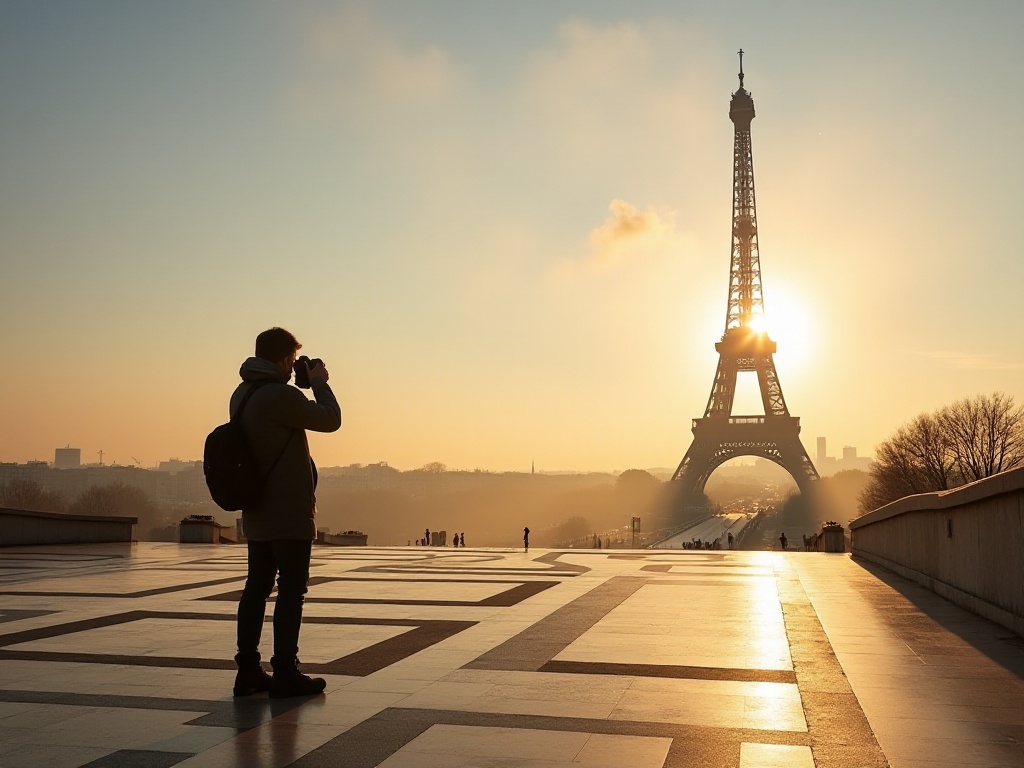Do you often feel like your travels are superficial and fleeting? Do you return feeling like you've seen everything yet understood nothing? That empty feeling is like having a buffet where you sampled many dishes but didn't truly taste any of them. As a seasoned backpacker who has visited over 30 countries, I want to share how to make travel more meaningful.
To be honest, my initial travels were also boring checkbox experiences. Take a photo, post on social media, then what? My heart felt empty, as if I was just telling others "I was here." Until one evening at a night market in Chiang Mai, Thailand, when an elderly man chatted with me all night in broken English, sharing stories from his youth to his understanding of life. That's when I realized true travel should touch the soul, not just collect tourist sites.
Now my friends call me weird because I might walk two hours just to find a local-recommended restaurant, or stay in one place for three days just to watch a sunset. But it's these seemingly "inefficient" experiences that have transformed my travels from surface-level sightseeing into deep reflections on life.
Travel actually begins the moment you start planning. I remember spending a whole month researching and booking flights for my first solo backpacking trip to Europe. But this process itself made me deeply anticipate and long for the places I would visit. Before bed, I would imagine standing beneath the Eiffel Tower or walking through Venice's narrow alleys. This imagination is part of the journey, making the whole experience more vivid and rich.
Start looking for flights three to six months in advance - this period often has moderately priced flights. Last year I flew to Paris, booking 4 months ahead for only 3,800 yuan round trip. Usually this route costs 6,000+. So timing really matters for booking flights. I usually set up price alerts and compare prices across platforms while monitoring airline promotions. Sometimes changing the departure date by just one day can make a big price difference.
I have a dedicated Excel spreadsheet tracking flight price fluctuations. Over time, I've even learned to predict price trends for certain routes. For example, flights to Southeast Asia often have a small price drop after Chinese New Year; flights to Europe are usually cheaper in autumn and early winter compared to summer. These patterns come from constant comparison and observation.
Visa applications are also an art. I always prepare visa materials at least two months in advance, especially for countries requiring appointments like the US and UK. Organization and completeness are crucial when preparing materials. I arrange everything according to embassy requirements and clearly label each document. This not only improves visa approval rates but makes the whole process smoother. Once when applying for a Japanese visa, I got it in just three days because my materials were so complete.
Knowledge preparation is equally important. Before each trip, I now read one or two books about local history and culture. Before going to Turkey, I read "Istanbul: Memories and the City," which gave me a much more three-dimensional understanding of the city. Can you imagine walking through Topkapi Palace with visions of Ottoman Empire grandeur from the book playing in your mind? It felt like traveling through time.

Many people ask me: Do you have to stay in five-star hotels to be safe? In my experience, boutique hostels or guesthouses often provide more authentic experiences. Last year in Kyoto, I stayed in a century-old machiya converted into a guesthouse, run by an 80-year-old grandmother. Every morning she prepared traditional Japanese breakfast for guests and patiently taught us how to use chopsticks properly. This kind of warmth can't be found in any luxury hotel.
I remember that Japanese grandmother - though we couldn't really communicate, she used gestures and simple English words. Every morning when we woke up, she had already prepared breakfast: a small bowl of miso soup, grilled fish, several delicate side dishes, and freshly cooked rice. She told us these were all recipes her mother taught her when she was young. Through these simple daily interactions, I learned not just about Japanese food culture but also felt the Japanese dedication to tradition and life.
For accommodation, I pay special attention to location and transportation convenience. Ideally, I prefer staying in areas where locals live rather than purely tourist zones. This provides a more authentic local experience and is often more reasonably priced. In Barcelona, I chose to stay in Gracia district instead of near the crowded Las Ramblas. Every morning, I would buy fresh fruit at the local market and enjoy breakfast at nearby cafes surrounded by locals rushing to work - that sense of belonging is indescribable.
When it comes to shopping, my advice is: buy meaningful souvenirs rather than typical tourist items. In Fez, Morocco, instead of buying carpets in tourist markets, I found a family workshop in a remote alley. The owner was a third-generation carpet weaver. Though the price wasn't much cheaper than tourist areas, knowing it was a genuine handmade piece from local traditional craftsmanship made the purchase more meaningful.
In Turkey's Cappadocia, I remember waking up at 4 AM just to watch hot air balloons take off. Standing on the mountaintop, watching dozens of colorful balloons slowly rise against the dawn sky - that beauty made me instantly forget all fatigue. In my notebook, I recorded not just this scene but also my emotions: awe at life's magnificence and wonder at nature's miracles. These emotional records evoke the moment's feelings better than any photo.

The most important thing while traveling is maintaining an open and accepting mindset. Last year in India, I encountered heavy rains that disrupted all plans. But this unexpected event let me stay three extra days in a small town, meet many interesting locals, and even attend a traditional Indian wedding.
Curiosity is also key to enriching travel experiences. In Penang, Malaysia, I noticed elderly people playing an unusual card game in the park. Out of curiosity, I went to watch, and they enthusiastically invited me to join. Despite language barriers, through gestures and simple English words, I learned the basic rules of this game called "Thirteen Cards." I spent the whole afternoon immersed in this new experience, not only learning a local game but also hearing many stories about Penang's history and culture from these elderly people.
Learning to be alone is also part of deep travel. Many people fear traveling alone, thinking they'll be lonely or bored. But actually, solo travel lets you focus more on your surroundings and makes it easier to connect with locals. In Venice, I often walk alone through empty alleys in early morning or late night, listening to canal waters, observing ancient buildings in morning mist or moonlight. These quiet moments let me truly feel the city's soul, not just its surface bustle.
I always feel true travel isn't about checking off tourist sites, but feeling a place's living pulse. In Ho Chi Minh City, I love waking at 5 AM to practice tai chi with locals in the park. In Morocco, I specifically visit residential markets to watch women haggling. These small life moments are the most precious travel memories.
Respecting local culture and customs is essential while traveling. In India, I always remember to remove shoes before entering temples; in Middle Eastern countries, I mind my dress to respect local religious traditions; in Japan, I follow seemingly complex but culturally meaningful etiquette rules. This respect not only avoids offending locals but makes it easier to be accepted and gain authentic cultural experiences.
Learning to slow down is also key to deep travel. Modern people are used to fast-paced life, often seeking "efficiency" in travel: three museums, two attractions, and a show in one day. But such tight schedules often leave people exhausted with no time to truly immerse in a place's atmosphere.
In Santorini, Greece, I spent sunset at the same beach for three consecutive days just to capture sunset views in different weather. The first day was clear, the second had thin clouds, the third had thick clouds. Three days of sunsets showed completely different colors and atmospheres. This patient waiting and observation gave me a deeper feeling for the island's changing light and let me take some very satisfying photos.
Gratitude is also an important travel mindset. Whether meeting strangers who kindly help you or encountering unexpected beautiful scenery and food, these are all gifts of the journey. While trekking in Nepal, a villager invited me to his home for tea. Though his home was very modest, he served his best tea and snacks.
 Previous
Previous
